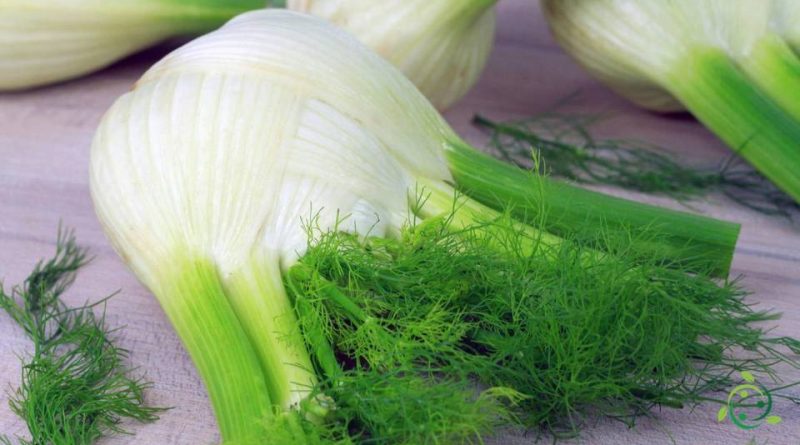Nutritional value of Fennel
Nutritional value of Fennel
Fennel (Foeniculum vulgare Mill.) Is a herbaceous plant of the Apiaceae family, known since ancient times for its aromatic properties.
Features –
Fennel is a vegetable whose horticultural cultivation seems to date back to the 16th century.
It is a typical ingredient of the Mediterranean diet, it is particularly cultivated in southern Europe, especially in Italy.
Cultivated fennel, or sweet fennel, is an annual or biennial plant with a tap root. This plant reaches 60–80 cm in height.
The large white heart-shaped sheath that develops at the base is consumed of this vegetable, offered for sale with a short tuft of stems and leaves.
Nutritional factsheet –
Fennel grown as a vegetable is a plant that is a good source of flavonoids. Inside there are also numerous essential oils, responsible for the typical flavor similar to that of anise.
As for the substances contained in it, on average, 100 g of fennel bring about 31 Calories divided as follows; obviously the content of the following substances and concentrations also changes according to the cultivation system and some techniques adopted; in general we will have:
– 43% carbohydrates;
– 1% lipids;
– 56% protein.
In particular, in 100 g of fennel we have:
– 90.21 g of water;
– 1.24 g of protein;
– 0.20 g of lipids;
– 7.30 g of carbohydrates, including: 3.93 g of sugars and 3.1 g of fiber;
– 5 mg of vitamin C;
– 12.0 mg of niacin;
– 0.047 mg of vitamin B6;
– 0.58 mg of vitamin E;
– 0.032 mg of riboflavin;
– 0.010 mg of thiamine;
– 963 IU of vitamin A;
– 62.8 µg of vitamin K;
– 27 µg of folate;
– 414 mg of potassium;
– 52 mg of sodium;
– 50 mg of phosphorus;
– 49 mg of calcium;
– 17 mg of magnesium;
– 0.73 mg of iron;
– 0.20 mg of zinc;
– 0.7 µg of selenium.
Property –
Foeniculum vulgare, as mentioned, is a vegetable that has been cultivated for hundreds of years and is appreciated for some of its properties, as well as for its aroma.
Diuretic and carminative properties are attributed to fennel, that is, capable of reducing the air present in the stomach and intestines, thus alleviating some conditions of meteorism, flatulence and colitis.
Furthermore, the antioxidant content makes fennel one of our body’s best allies: in particular, it contributes to effective prevention of tumors and other diseases.
With fennel you can prepare some herbal teas which, taken shortly before meals, always without sugar, can reduce appetite, a very useful effect especially for those who want to follow a slimming diet or have overweight problems. In any case, this drink is recommended to everyone for its purifying and diuretic properties.
Fennel, therefore, can be consumed by everyone, indeed the important content of calcium and phosphorus is excellent for ensuring the achievement of daily needs, while the supply of water and fiber makes it perfect for maintaining proper intestinal function.

